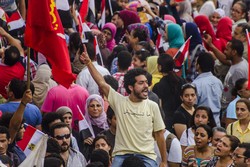Drivers behind the Arab Spring unveiled
The last few years have seen a whirlwind of uprisings taking place in the Arab world, starting from Tunisia and spreading to several other nations in the Middle East and North Africa (MENA). Economic hardships, totalitarian rule, perceived injustices and rife corruption were the suspected culprits behind the Arab Spring, but more research was needed to draw firm conclusions on the causes. Against this backdrop, the EU-funded project ARABTRANS(opens in new window) (Political and social transformations in the Arab world) investigated the reasons behind the Arab uprisings and what the impacts were. It looked at existing approaches for comprehending political transitions, as well as social, economic and political drivers, and attitudes and values that fuelled the uprisings. Importantly, the project team gathered relevant information that spanned two decades prior to the 2010 Tunisian episode and then looked at how the situation had changed by 2014. Based on citizen surveys in Algeria, Egypt, Iraq, Jordan, Libya, Morocco and Tunisia, the study produced new insight on how the MENA perceives democracy. It considered the uprisings’ dynamics by examining gender roles, religion, politics, employment, corruption, distrust of the state and political mobilisation. Initial findings reveal that citizens not only understood democracy, but also its commitments to social justice and economic rights. The results also show that while western-style democracy was not popular, citizens rejected religious leaders’ involvement in politics, highlighting instead concerns such as social justice and economic rights. Moreover, key findings highlight that the uprisings emerged from citizen concern over corruption and economic dislocation. The outcomes also reveal distrust towards politicians and dissatisfaction with liberal institutions such as elections that were deemed inadequate. ARABTRANS noted that the EU could play a role in furthering development, but cautioned that current free trade agreements are producing more inequality rather than less. These findings were disseminated through reports, policy briefs, academic publications and social media, as well as through the project’s website. Policymakers from both Europe and the MENA would do well to consider the findings of this valuable study.







